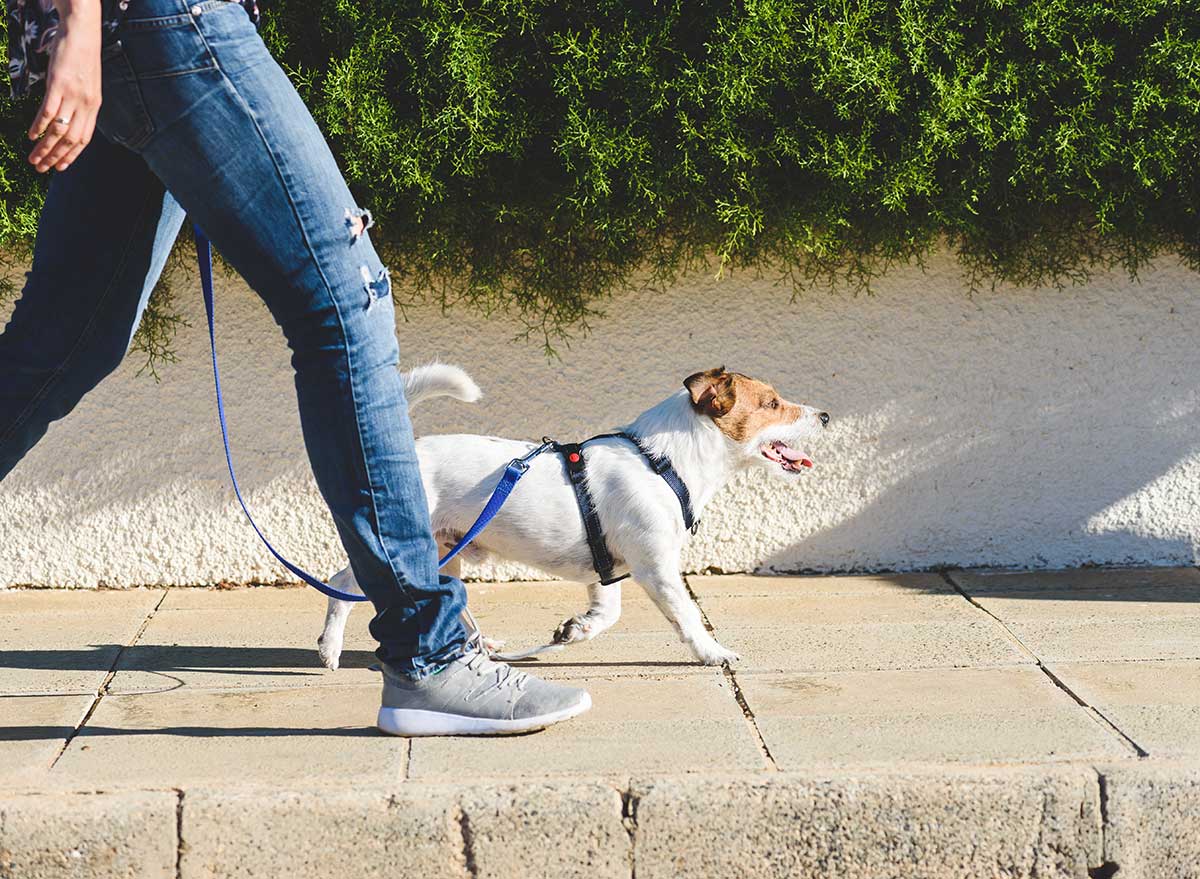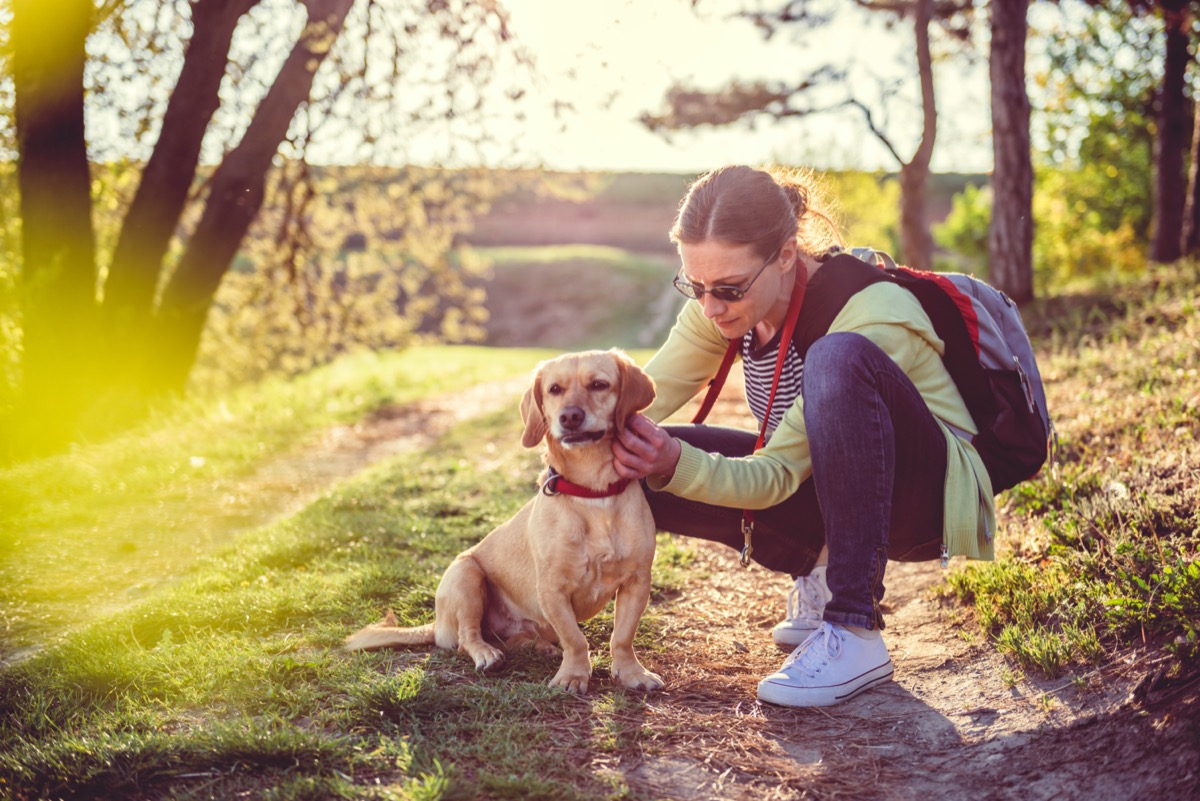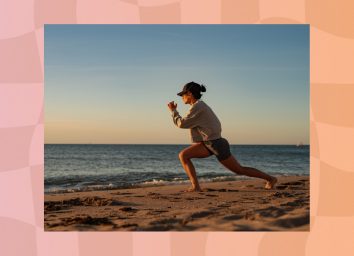Secret Side Effects of Owning a Dog, According to Science

It’s simply a fact that our favorite furry friends love us. For instance, recent research published in the scientific journal PLOS One found that dogs with no prior rescue training at all instinctively knew to save their owners in a simulated emergency. When participating owners were “locked” in a box and instructed to yell “help!,” one-third of the dogs not only ran over to help but also figured out how to open the box and rescue their owner. “Most dogs would run into a burning building just because they can’t stand to be apart from their owners. How sweet is that? And if they know you’re in distress, well, that just ups the ante,” says study co-author Joshua Van Bourg of Arizona State University.
Where does all of this canine kindness come from? Turns out it’s in their blood. A study released a few years ago by Oregon State University reports that it is literally in dogs’ genes to crave social interactions with humans. But owning a dog comes with far more benefits than loyalty, protection, and companionship when you go out for your morning walks. In fact, the act of owning a canine can affect your life—and your body—in a number of surprising ways. Read on for what they are, and for more on how everyday life affects your body, see The One Secret Side Effect of Watching Too Much TV After 40, Says New Study.
Owning a Dog Can Extend Your Life

Bringing a new pup into the home can certainly enrich our lives, but there’s some significant research suggesting dogs can also extend our lives. Research conducted in Sweden and published in the scientific journal Scientific Reports found that dog owners had a lower risk of death due to cardiovascular problems or all causes over a 12-year followup period. Interestingly, this canine protective effect seems to be especially pronounced among people living alone.
“The results showed that single dog owners had a 33% reduction in risk of death and 11% reduction in risk of myocardial infarction during follow-up compared to single non-owners,” explains co-study author Mwenya Mubanga of Uppsala University. “Another interesting finding was that owners of dogs from breed groups originally bred for hunting were most protected.”
Building off of that work, an additional meta-analysis of more than 3.8 million people concluded that dog owners were 24% less at risk of all-cause mortality than non-dog owners, and had a 65% lower chance of suffering a heart attack.
Owning a Dog Helps You Sleep

Sleep is increasingly elusive these days for so many of us. And while plenty of dog owners will tell you that it’s a bad idea to let your dog into the bedroom, a study put together by the Mayo Clinic says letting your dog sleep in your bedroom may actually improve sleep efficiency. There’s only one caveat: You shouldn’t let Fido onto the bed. (It’s worth noting though that all 40 studied dog owners in this project only had one canine companion, so it may not be as restful an idea if you own two or more pups.)
“Most people assume having pets in the bedroom is a disruption,” says study author Lois Krahn, M.D., a sleep medicine specialist at the Center for Sleep Medicine on Mayo Clinic’s Arizona campus. “We found that many people actually find comfort and a sense of security from sleeping with their pets.” Additionally, all of the extra exercise promoted by owning a dog (more on that later) definitely doesn’t hurt when it comes to getting better sleep. And for more great advice you can use starting now, don’t miss The Secret Trick for Beating Procrastination, Says Top Psychologist.
Owning a Dog Will Make You More Active

Whether or not you enjoy long walks, if you own a dog, you’re going to have to put in some serious footwork to keep your pup physically content. Dogs, unlike many humans, aren’t happy to spend all day every day lounging around. Our canine friends may crave our attention, but they crave exercise just as much.
How much daily exercise is ideal? The answer to that depends largely on your dog’s breed and age. For example, UK veterinary charity PDSA tells us an adult chihuahua will likely be happy with about 30 minutes of exercise daily while a golden retriever is going to want to keep moving for at least two cumulative hours.
Furthermore, research including over 3,000 people published in the Journal of Epidemiology and Community Health reports older adults who own a dog live healthier and more active lives. “We were amazed to find that dog walkers were on average more physically active and spent less time sitting on the coldest, wettest and darkest days than non-dog owners were on long, sunny, and warm summer days,” says study leader Andy Jones, a professor at the University of East Anglia. “The size of the difference we observed between these groups was much larger than we typically find for interventions such as group physical activity sessions that are often used to help people remain active.” And if you’re curious for all sorts of handy and smart ways you can move more every day, try these 5 Secret Little Exercise Tricks for Living a Longer Life.
Owning a Dog Will Lower Your Stress Levels

There are endless advertised ways to overcome stress, from meditation to dietary supplements, but the simplest stress solution may be owning a dog. A study released by Washington State University reports just 10 minutes spent petting a dog (or cat) helped stressed out college kids calm down and improve their mood. Those students also showed tangible drops in cortisol (a major stress hormone) after petting some pups.
According to Hopkins Medicine, spending time with a dog also increases levels of oxytocin, a hormone linked to feel-good feelings. And for more on why you should get your stress under control, check out The Crazy Things Being Stressed Out Does to Your Body.








